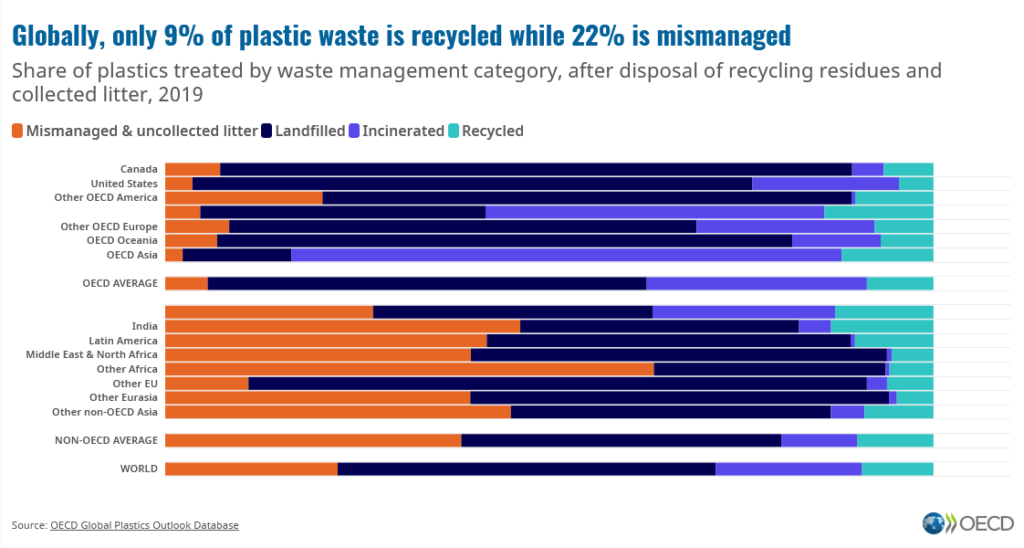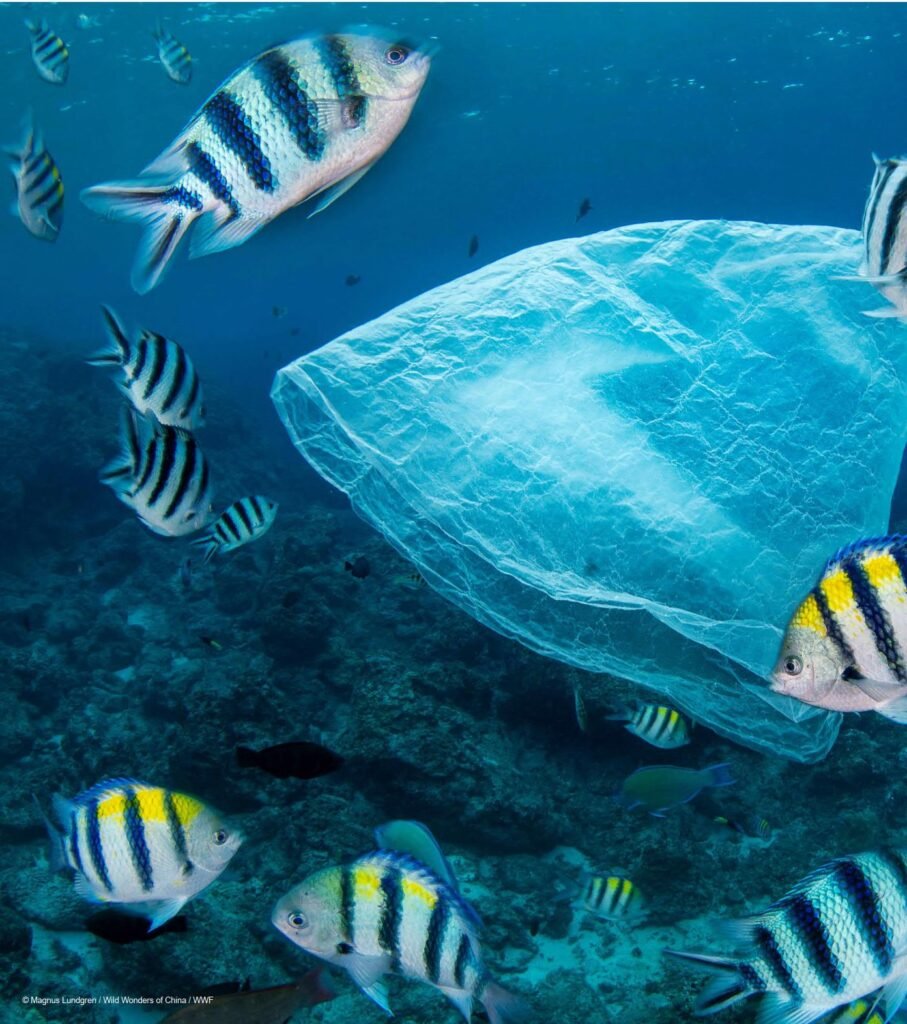Recycling plastic is a real bummer. Apparently, only 15% of plastic waste gets recycled globally, and even then, almost half of that just gets thrown away. So basically, only 9% of plastic waste actually ends up getting recycled and the rest 91% goes to landfills, incinerators, or just gets thrown out into the environment.

It’s pretty tough to come up with legit solutions for a problem as huge as this. Trying to ban stuff like plastic straws just seems kinda funny when you think about how much waste we create from all the other stuff we use, like those plastic cups that come with the straws.
But now there’s a glimmer of hope. World leaders, scientists, and advocates have teamed up to create a global treaty under the UN that could put an end to plastic waste. The second round of negotiations concluded last week in Paris with a plan to produce an initial draft of the deal.

This treaty is gonna be a big deal. It’s gonna take a while to work out all the nitty-gritty, but once it’s finalized by the end of 2024, it’s gonna require countries to step up their recycling game and do a whole lot more (A number of environmental organizations including WWF have lists of products that the treaty should prioritize.)
When the negotiators get together, they’ll chat about a bunch of ideas. Stuff like setting a limit on how much plastic can be made, saying no to certain materials and products (especially the single-use kind), and even coming up with ways to promote reusable stuff. If they can agree on everything, it could have a huge impact on the world economy.

The treaty is pretty big deal. It’s not just about what happens to plastic items after we use them, but also focuses on the design and production of plastics. So basically, the treaty covers the entire life cycle of plastics.
Such a treaty could mandate that, by a certain year, total annual plastic production cannot exceed the amount of plastic produced in some baseline year. It’d be kind of like targets to slash fossil fuel production in order to curb climate change — but for plastic polymers.
Obviously, this would require major investments in infrastructure by governments, private funders, and companies — not to mention some changes in behavior among consumers.
Reference- UNEP, INVERSE, National Geographic, Reuters, Vox






